“Lifelong learning is the act of acquiring new information, skills, values, and competencies throughout life, rather than being taught a specific set of skills or concepts at a single point in time.” It is not just about schooling. Lifelong learning means acquiring new skills and information throughout life through reading, attending classes, participating in workshops, or listening to podcasts. This style of learning can be extremely beneficial, as it gives us the opportunity to learn in a way we never thought possible.
Lifelong learning is a concept that’s gaining popularity among millennials. The end of the career search marks the beginning, rather than the end, of education. We aren’t just looking for regular college degrees—we’re looking for the skills to develop our own professional identities. This means being more hands-on, more entrepreneurial, and more focused on self-actualization. And we’re learning new things all the time.
Why Is Lifelong Learning Important?
There’s always something new to learn. Well, not really. The truth is that learning doesn’t stop, and we’re not robots. We perfect our skills throughout our lives. But there are certain skills and competencies that we grow out of as we age. And that’s why lifelong learning is important.
Employers
Employers, you are hiring for your livelihood. It is important to seek out and retain the best employees you can possibly find. The most successful organizations leverage leading practices in creating a culture that fosters a continuous learning culture among their employees. Learning is important for employers. It builds a stronger, more engaged workforce. It strengthens consumer confidence and increases profitability. It makes a sustainable competitive advantage.
Individuals
Learning new things comes naturally to some people, but it’s a challenge for others. The main reason for this is that some people tend to avoid learning opportunities and, as a result, find themselves unprepared for change. But it is a lifelong activity that is essential to our happiness and success. Without learning, our careers and personal lives can become stagnant, and we may begin to feel bored. It is never too late to start learning new skills and mastering old ones.
Further Education and Skills Sector
Why is lifelong learning important beyond the obvious benefit of gaining more knowledge and skills? For people working or studying in the Further Education and Skills (FE and skills) sector, it’s obvious: for them; it’s how they work. Many FE and skills learners don’t enter their courses with qualifications, so they need the training to complete the course.
Lifelong learning refers to a continual process of adopting and adapting to new knowledge to make an individual a better individual. This knowledge can be acquired through schooling, training, working, volunteering, and other activities outside of traditional schooling. A common misconception is that lifelong learners are incapable of learning something by themselves. This is not true. Many lifelong learners have gained knowledge and skills without traditional schooling. However, this has been proven true by studies showing that students in schools that incorporate effective learning strategies are more likely to succeed.
Lifelong learning means continuing to enrich your education throughout your lifetime. It’s how you keep your brain sharp, improve your knowledge of subjects, promote creativity, and increase happiness. Lifelong learning can also help you better adapt to changes in the job market or society. The Bureau of Labor Statistics estimates that around 70% of the jobs of the future will require at least some postsecondary education, which means that learning new skills or keeping up to date with changing technology will be necessary to remain employable.
The ongoing development of employees is the key to maintaining a competitive edge in today’s job market. Continuing education, professional development, and continuing education are three alternative terms for lifelong learning.
